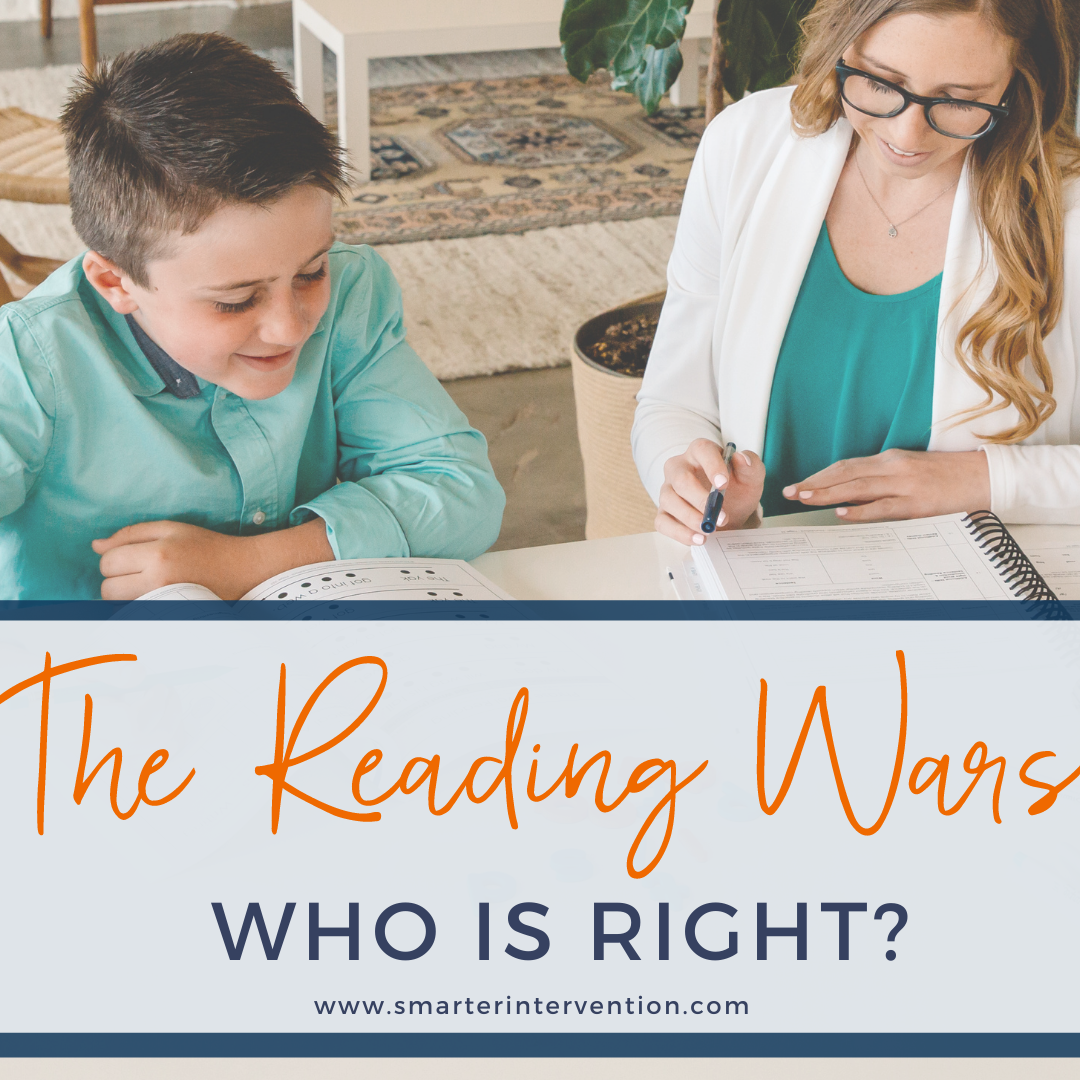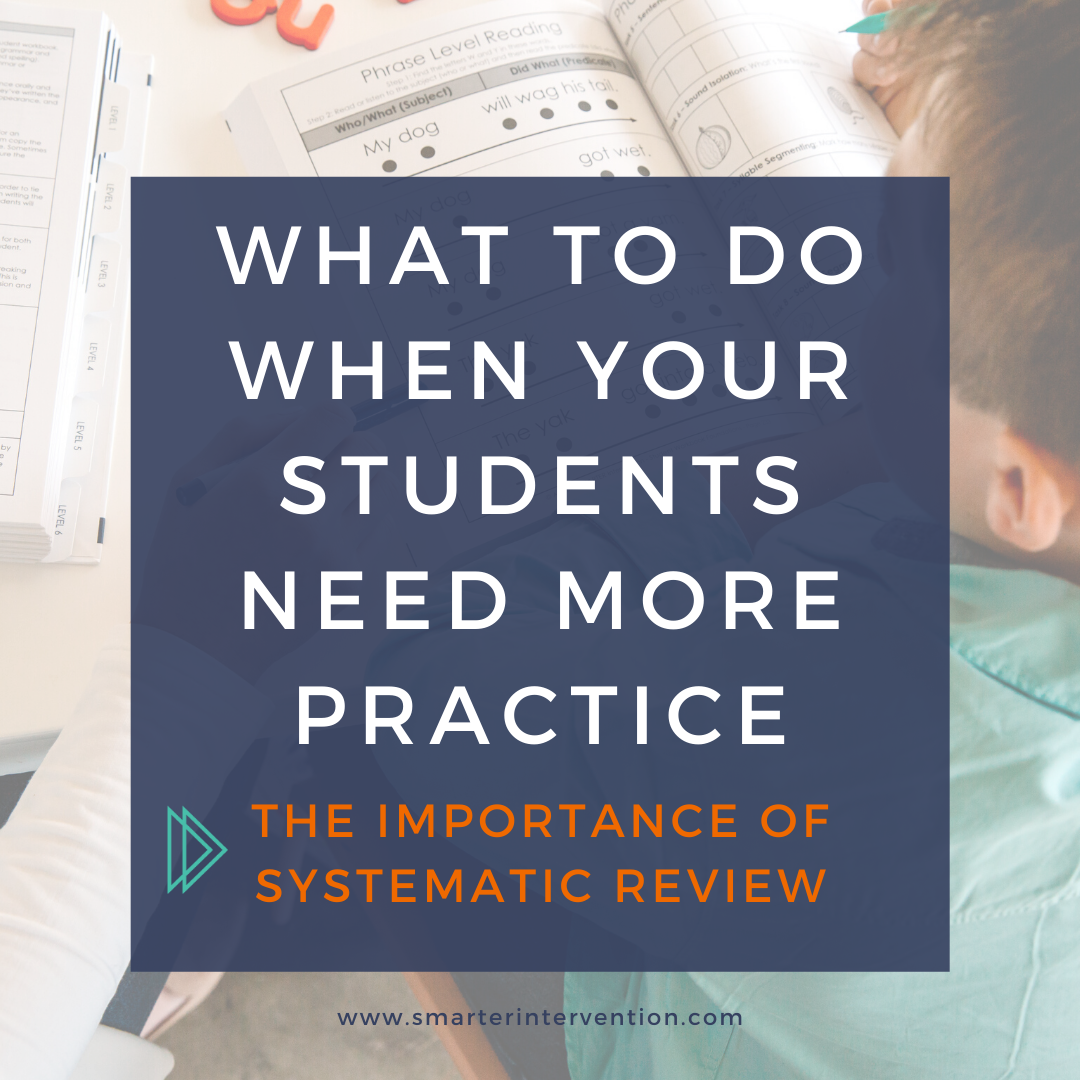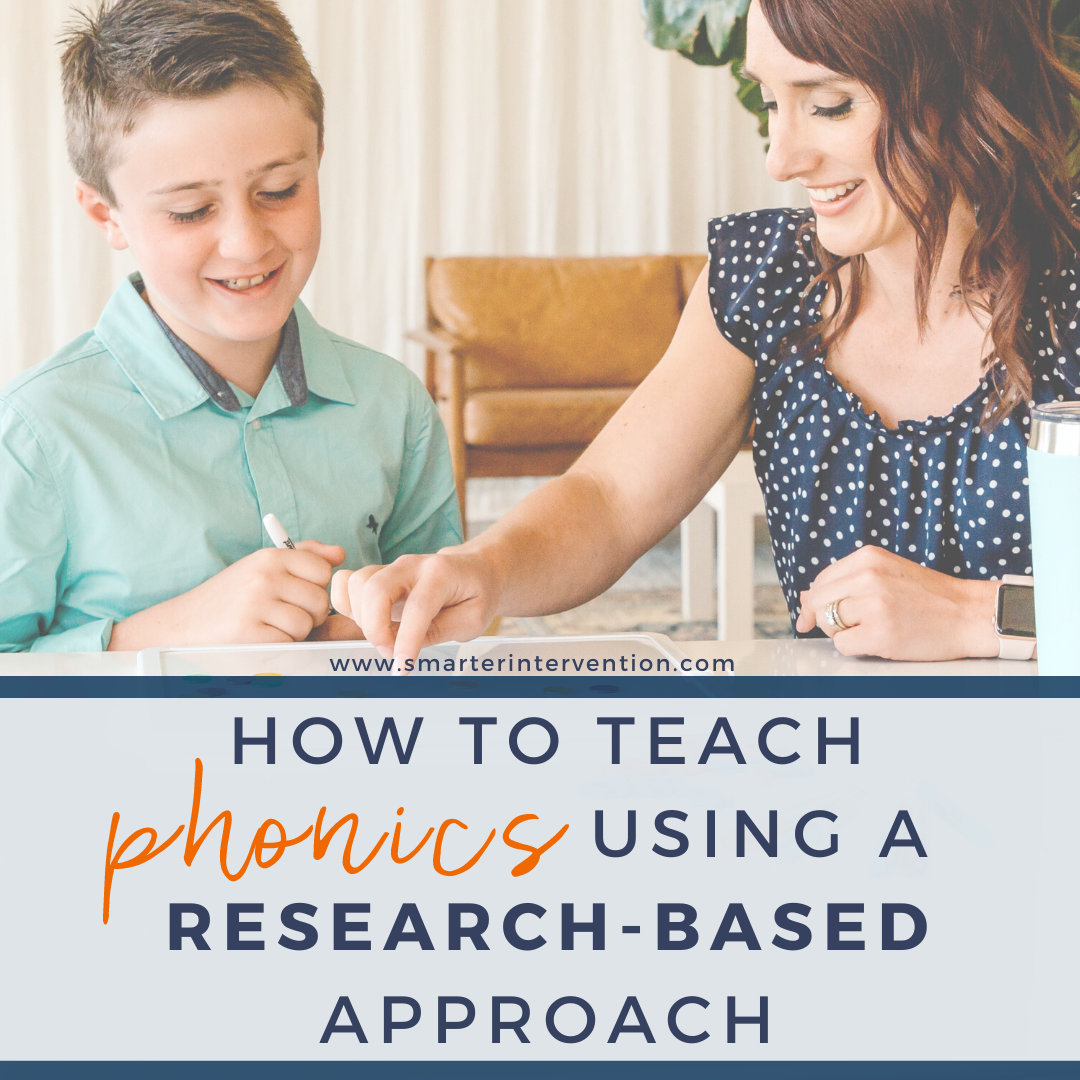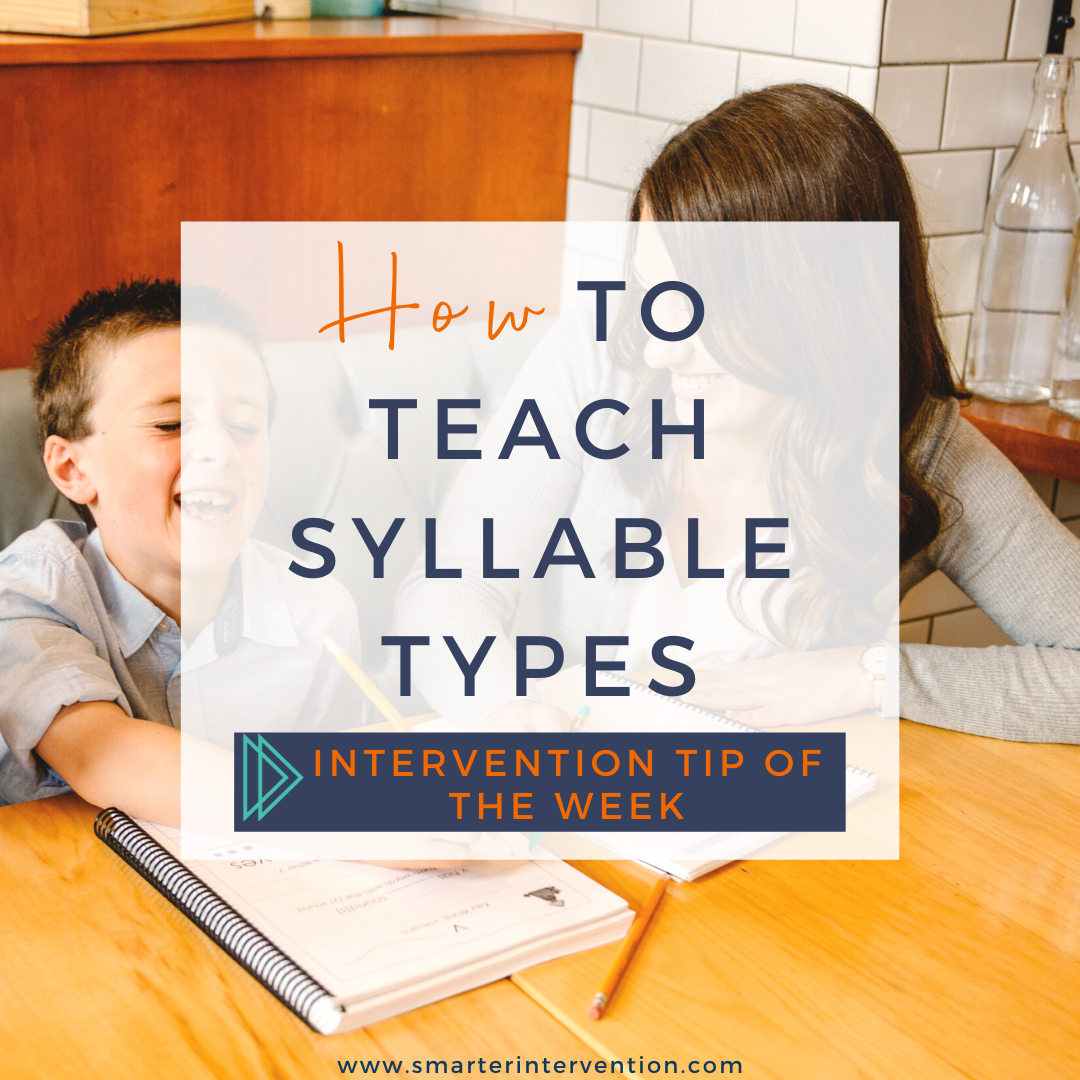Science-based literacy resources and articles
for families, educators and schools
Search by Category:
Categories
- Advocacy
- Business
- Comprehension
- Data Tracking
- Differentiation
- Dyslexia
- Evaluation and Assessment
- Executive Functioning
- Games & Activities
- Helping My Child At Home
- IEP/504 Plan
- Lesson Planning
- Math
- Online Intervention
- Organization
- Parents
- Phonics
- Phonological Awareness
- Reading Fluency
- Research
- SLP
- Spelling
- Vocabulary
- Writing
How To Use Your Students’ Interests to Improve Their Literacy Skills
Raise your hand if you've ever been told that your literacy instruction is boring. 🙋♀️ If you're raising your hand - you're definitely not alone.
It can be difficult to teach these skills to students in a way that feels engaging and exciting because let's face it - the skills that we have to teach aren't very exciting. Luckily, there is a solution.
By putting lessons together in a way that focuses on students' interests, you can absolutely change the game in your literacy instruction. Keep reading to learn our step-by-step process for putting these lessons together.
What Should My Phonics Instruction Look Like?
Have you ever wondered what SOR-aligned phonics instruction looks like? Click here to keep reading & learn more!
Why Do We Teach the Six Syllable Types?
Have you ever tried to organize something and had NO idea where to start?
Making sense of our phonics patterns used to feel that way! That is until we started to understand the six syllable types. These provide us with an organizational system for our phonics rules and help make reading & spelling infinitely easier for our students. Keep reading to learn more AND to grab our free Syllable Type Anchor Charts.
What is a Sound Drill?
I'm sure we've all been there… in the middle of a lesson and our student says, "but I already know this!"
Can you relate?
As we work through the sound drill, it is important that we understand why this task is important and be able to explain to our students why it is a necessary part of our lesson. Keep reading to learn more!
How Do I Fit It All In? Organizing Your Literacy Block to Align with the Science of Reading
Following the Science of Reading requires many lesson components we should be including in our literacy instruction.
Between explicitly teaching the 5 Core Components of Literacy, targeting student needs, tracking data, and pulling review activities - it can definitely feel like a lot!
But here’s the thing, research-based instruction that aligns with the Science of Reading does not have to be hard. All you need is a clear framework you can use to plan your lessons in alignment with research-based principles so that you know you are covering everything you need without it feeling super overwhelming!
The Reading Wars - Who is Right?
Raise your hand if you’ve ever heard of the reading wars.
This “battle” has been a long-standing argument between whole-language and phonics-based instruction. Over the last few decades (as more research has been done as a part of the Science of Reading movement), we have seen the pendulum swing back and forth and back again between these two reading approaches.
So… how do we know which is "right?" Keep reading to learn more about these two approaches and which is a fit for your students.
How to Use SOR to Support Students Who Struggle with Word Recognition & Comprehension
We’re so glad you’re here. Now over the last month, we’ve been talking all about how to use the Science of Reading and effective reading instruction strategies to support students with varying needs. We’ve talked about supporting students who are reading on grade level, supporting students who struggle with decoding and word recognition, we’ve talked about supporting students who struggle with comprehension, and today we’re going to talk about our last group of students, students who struggle with word recognition and comprehension. Click through to learn more!
How to Use SOR to Support Students with Poor Word Recognition
This week, we are taking a look at how we can best support students who struggle with word recognition (or sounding words out for reading & spelling).
Research tells us that between 70-80% of students who are struggling with reading specifically struggle with word recognition. In order for these students to read effectively, it is critical that we are able to teach them how to decode and encode. Keep reading to learn how we support this group of students and grab some of our favorite resources!
How to Build Fluency & Comprehension at the Passage Level
When working with students, our end goal is always that they can functionally read and write. A big part of this is the ability to read at the passage level and derive meaning from the text.
Luckily - building fluency and comprehension at the passage level doesn’t have to be hard. Keep reading to learn how you can incorporate this instruction into your reading lessons!
How to Fit Vocabulary in to Your Reading & Writing Lessons
Vocabulary instruction is necessary in order for phonics to matter. Keep reading to learn how you can easily & effectively incorporate vocabulary instruction into your reading & writing lessons.
How to Get the Most Out of Your Literacy Lessons
Have you ever thought to yourself - “How in the world am I EVER going to fit everything into my lessons?!” or maybe, “How can I better support my students?”
We certainly have!
The great news - we can actually make our interventions lessons MORE effective WITHOUT adding a ton of additional time. Keep reading to learn how!
How To Explicitly Teach Phonics Rules
It’s no secret that research tells us we need to teach rules explicitly - but what exactly does that mean?
Today, we are going to break down exactly what “teaching rules explicitly” means as well as walk you through how you can use this approach in your lessons!
What To Do When Your Students Need More Practice: The Importance of Systematic Review
Have you ever looked through your students’ lesson data and thought - “gosh, they just aren’t getting this?”
We’ve all been there. Today - we are going to break down what you can do when students need more practice and the importance of systematically reviewing previously learned concepts.
How to Teach Sight Words using a Research-Based Approach
In reading intervention we hear terms like sight words, red words, high-frequency words, phonetically irregular words, heart words, and so many other variations used every day. Today, we are jumping in to explain what these words actually are, and what the research says about how we should be teaching them!
How to Teach Phonics using a Research-Based Approach
In the field of reading - phonics is a pretty common term. However, there is much more to phonics & teaching the skills it encompasses than you might think.
Today, we are going to break down what exactly phonics is, and how we ACTUALLY should be teaching these skills to our students. Here’s the thing - there’s a LOT of information out there and it can definitely feel overwhelming if you are trying to pull all of this together alone. The good news though? It doesn’t have to be hard! Our goal is to give you a clear framework you can use to implement research-based instruction!
How to Teach Syllable Division - Intervention Tip of the Week
Today we wanted to share our intervention tip of the week! How to teach syllable division to support decoding skills.
We have a great resource you can use to learn WHY we should teach syllable division patterns!
And today we wanted to walk you through our process and give you some thoughts on why we use the “spot and dot” strategy…
How to Teach Syllable Types - Intervention Tip of the Week
When working with struggling readers, we find it critical to make sure that we are providing frameworks or memory supports wherever possible. Whenever we can lump concepts into bigger picture concepts it really helps our students out! One amazing place to do this is by teaching the six syllable types. We have TONS of information on the six syllable types in our blog post here >>What’s This About Six Syllable Types<<
The great thing about teaching syllable types is that we can lump phonics patterns into their syllable types to provide bigger picture buckets for students.
5 Core Components of Reading - Phonics
Many educators in the field have a love hate relationship with phonics. In the sense that some educators love a phonics approach one week and hate it the next (it can be extremely difficult to organize it all for Pete’s sake). And…some educators LOVE a phonics-based approach and others hate it in favor of a more whole-language approach.



















